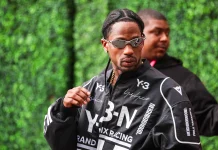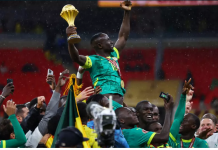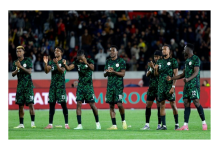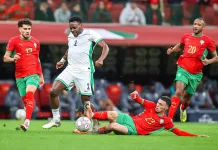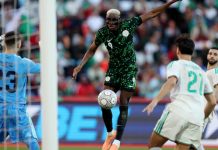Nigeria’s capital turned tense on Monday morning, October 20, 2025, as armed security forces clashed with protesters demanding the release of detained separatist leader, Nnamdi Kanu.
Tear gas, water cannons, and armoured trucks filled the streets around central Abuja, marking one of the most forceful crackdowns on political dissent in recent months.
Pro-Biafra demonstrators began assembling at dawn near the Transcorp Hilton and major routes to the Presidential Villa, waving banners that read #FreeNnamdiKanuNow. Within minutes, riot police and soldiers surrounded the area, blocking access roads and dispersing the gathering before it gained momentum.
Witnesses said security personnel fired volleys of tear-gas canisters while shouting orders for crowds to “disperse immediately.” Sporadic gunfire was also reported, prompting panic among bystanders and commuters.
Prominent activist Omoyele Sowore and several clerics who joined the march were among those chased off the scene. Some protesters were arrested, while an AFP journalist was briefly detained before being released.
The protests were triggered by the continued detention of Nnamdi Kanu, leader of the proscribed Indigenous People of Biafra (IPOB), despite previous court rulings suggesting he should be freed. Kanu — a British citizen and vocal advocate for an independent Biafra — faces terrorism and treason charges in Nigeria.
Supporters insist his imprisonment is politically motivated and symbolic of broader marginalisation faced by the Igbo-majority southeast. For many, his case reopens old wounds from the 1967–1970 Biafran War, when millions perished amid a failed secession attempt.
Observers warn that Monday’s crackdown could reignite regional tension and deepen mistrust between Abuja and the southeast.
Human-rights groups have criticised the heavy-handed response, saying it undermines freedom of assembly.
Political analysts caution that silencing peaceful demonstrations risks emboldening extremist voices.
Images of armoured trucks and gas clouds circulating online have already fueled anger across social media platforms, with hashtags like #FreeNnamdiKanuNow and #EndPoliceBrutalityAgain trending on X (formerly Twitter).
The protest’s disruption has drawn international attention — particularly because of Kanu’s British citizenship and vocal diaspora supporters. Rights organisations in London, Toronto, and Washington DC have already called for a renewed diplomatic review of his detention.
Whether the government chooses to engage or escalate remains uncertain. Analysts predict that Abuja’s response in the coming days will shape not only the fate of Nnamdi Kanu but also the narrative around Nigeria’s democratic tolerance and national unity.
The tear gas may have cleared, but the questions persist — will the government finally address the root causes of discontent, or will Nigeria’s old divisions once again find new fire in the streets of its capital?


